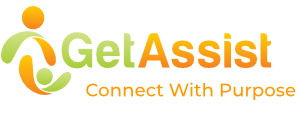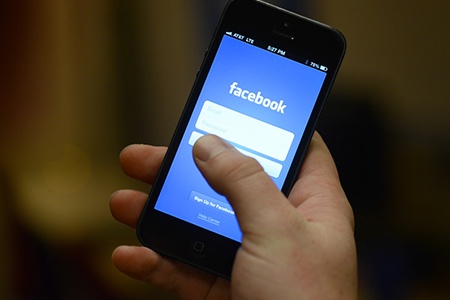10 Reasons to Give Up Facebook in 2016

What’s your New Year’s Resolution? Improve your health? Increase your productivity? Spend more time with loved ones? What if we told you you could accomplish all of those goals—and more!—with one simple lifestyle change. Would you believe us? Here are 10 reasons we think it’s time to give up Facebook in 2016—because you deserve to get more network out of your social network.
- It Isn’t Improving Your Daily Life
Try to think of one way Facebook enhances your day-to-day life. Sure, it might soothe the itch when boredom instantly sets in through a commercial break or during an awkward pause in conversation, but what else does it GIVE you? Nothing.
- It’s Become Ad Central
Facebook is now considered the holy grail of advertising, with companies, both large and small, jumping on the bandwagon faster than you can fry an egg. Sure, you can attempt to filter out the ads you don’t want to see, but who has time for that? Speaking of time…
- It’s a Waste of Time
The average user spends around 21 minutes per day on Facebook. If they joined in 2010 (highest user sign-up spike YTD), that would be nearly 640 hours, or about 26 full days on the platform. And those numbers are conservative! Has liking a photo of a high school friend’s baby ever resulted in a promotion at work? Has commenting on a funny dog video ever yielded better health? Let’s face it: Facebook is an addictive form of procrastination you just don’t need in your life.
- It’s Bad for Your Health
Facebook has been proven to be bad for both your mental and physical well-being. Some studies are beginning to find that Facebook can deregulate the immune system, increase cortisol (stress) levels and impact other bodily functions in negative ways.
- It Increases Depression
Many recent studies have looked into the effects of Facebook use, finding that it can have a negative effect on wellbeing.
A study published December 3rd by the University of British Columbia, Canada, found that envy is a key motivator behind many Facebook updates, with Facebook having led some users to feel unfulfilled by their own lives when compared to those of others.
Meanwhile a Danish study by a team of researchers from the Happiness Research Institute, Denmark, published their findings last month which showed that in their investigation Facebook users were 39% more likely to experience feelings of unhappiness than non-Facebook users.
A 2014 study linked increased Facebook use to increased general dissatisfaction with life.
“On the surface, Facebook provides an invaluable resource for fulfilling the basic human need for social connection. Rather than enhancing well-being, however, these findings suggest that Facebook may undermine it.”
“Facebook depression” is now a common term, and is often linked to the continual comparison of ourselves to others. For the sake of your mental health, don’t fall into the trap.
- It Prevents You from Oversharing
“I regret never posting that drunken video from the office holiday party, or the picture of my sub sandwich I had yesterday,” said no one ever. What is the point of sharing every little detail of your life with a group of people who probably don’t care much anyway?
- It Protects Your Privacy
Most Facebook users don’t know the negative consequences that can arise from a lack of privacy, and the platform likes it that way. This is why they change the privacy panel options often, making it exhausting—and again, time consuming—to keep up. It’s simple: Facebook makes money off of sharing user demographics and information with salivating companies.
- It Brings You Closer to Friends and Family
When you’re not spending all your time on Facebook sifting through the noise, you will be surprised how much time you have to actually connect with those you care about. Pick up the phone and call your mom. Go see a movie with your brother. Start a private community in GetAssist to communicate with your closest friends and no one else. You’ll quickly see your most valuable relationships grow from your concerted efforts.
- It Won’t Affect You As Much As You Think
Give up Facebook for a day, a week or even a month and you’ll quickly realize you’re not missing out on much. Unfortunately, for many of us, the platform has become an addiction we don’t even realize we’re feeding. We promise, the withdrawal symptoms will quickly fade, especially if you take the advice from Entrepreneur and invest in another social network that supports your pursuits (like GetAssist!).
- It Falls Short of More Purposeful Networks
Sure, Facebook may have started the social networking phenomenon, but don’t be mistaken: emerging platforms are evolved and provide you with better ways to communicate. GetAssist was created to help you get more network from your social network. See why so many people are leaving Facebook for GetAssist by checking it out here.







